Feed aggregator
6 Spine-Chilling Revenge Novels You Can’t Miss
Revenge is a dish best served cold, or so the saying goes. Revenge novels served…
The post 6 Spine-Chilling Revenge Novels You Can’t Miss appeared first on LitStack.
OUT NOW- The Princess Exile (The Schooled in Magic Universe I)
A novel set in the bestselling Schooled in Magic universe!
There was no reason for Crown Princess Anastasia of Rockfall to worry about her future, not when she was the only heir to a small yet surprisingly important kingdom within the Allied Lands. There was no reason, either, for her to learn magic, or the growing arts of science and magitech, or indeed anything else … until she was kidnapped by a sorceress who stole her face, cursed her so she could never reveal her real name and dumped her on the far side of the Allied Lands, all the while intending to impersonate Anastasia long enough to murder her parents, be crowned Queen and instigate a reign of terror.
The sorceress believes Anastasia will never make it home, that she will be murdered or enslaved or simply vanish without trace. But with her parents and her kingdom at stake, Anastasia will do everything in her power to get back home and master the arts that will save them …
Or die trying, a very long way from the only home she’s ever known.
Read a FREE SAMPLE, then purchase from the links here: Amazon US, Amazon UK, Amazon CAN, Amazon AUS, Books2Read, And read the afterword HERE. And you can read another Schooled in Magic novella in Fantastic Schools War, out now! Reviews Welcome!

What Possessed You? — Part I
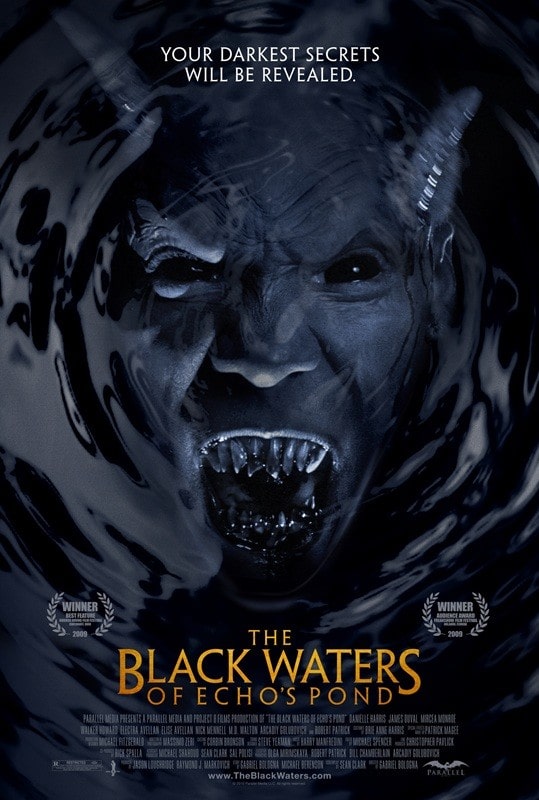
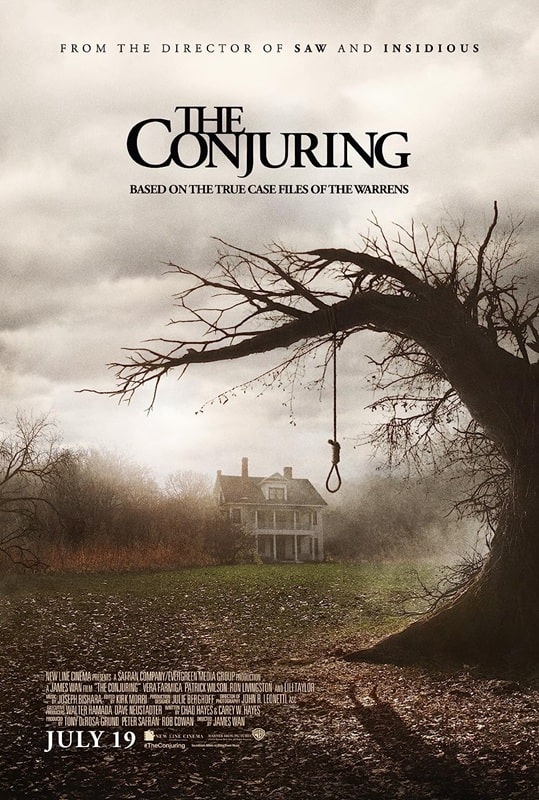
The Black Waters of Echo’s Pond (Parallel Media, April 9, 2010)
and The Conjuring (New Line Cinema, July 15, 2013)
20 new watches, all featuring my least favorite horror genre, possession and exorcism flicks. The power of Christ compels you to follow along.
The Black Waters of Echo’s Pond (2010) – TubiSo, here we are, at the beginning of a slew of 20 possession/exorcism flicks. This is seriously my least favorite horror genre — I find them all a bit samey, and lacking in humor, but we’re here now, and I’ll try to slip some little known films in between the bigger budget affairs.
Black Waters is a good place to start — it’s not offensively terrible, but it’s also not great, so it’s a fitting bar. In 1924, some black and white archeologists unearth a hidden shrine to the ‘Pans’, those goaty flute tooters who love a party. They also find instructions to build a device to summon said Pans. Before you know it, they’ve killed each other on an island off Maine.
Flash forward several decades, and some adolescent fodder has come to party on the same island, which is apparently only inhabited by Robert Patrick who is waiting for a decent role-call to come in. It doesn’t take long for these yoots to discover the device (an elaborate Jumanji-type board game) and inadvertently summon an extra from Narnia, who whispers naughty suggestions in their ears. Shenanigans ensue.
This one also stars Danielle (Halloween) Harris, and James (ID4) Duval, and they both do what’s needed of them, but the rest of the cast isn’t really up to par. The story and script are a bit dire, but the whole thing is saved with some great practical gore and spooky ol’ black eyes (I suspect I’ll be seeing a lot of these).
An average recommendation. 5/10
The Conjuring (2013) – NetflixWe plod on with a ‘proper’ film, the first in James Wan’s ‘Conjureverse’, that really sets the tone for the other films. Being a James Wan film, it’s beautifully shot, with plenty of his directorial flourishes to keep me happy, and he is really adept at setting up a scary payoff (Dead Silence will always be my favorite from him though).
The film centers on the real life charismatic charlatans, Ed and Lorraine Warren, and turns them into the founding Avengers in this subgenre of flicks, especially Lorraine. They are asked to investigate a family’s house that is causing all manner of terrible things to happen to mom and dad and their five daughters, and as the story unravels along with a couple of minds, we learn of its dark history and why the malevolent spirits want to cause such a kerfuffle.
It’s all based on people and events that allegedly happened, but turned up to 11 for horror film reasons, and everyone does a bang up job, especially our leads, Patrick Wilson and Vera Farmiga, and the put-upon Lili Taylor and Ron Livingstone.
Personally, I only got really invested in the second half when the crew arrived at the house to set up equipment and get down and dirty with the ghosts, although I acknowledge what a creepy set-up preceded these scenes. All in all, a slick, beautifully shot film, and I’m sure you don’t need my recommendation. 8/10
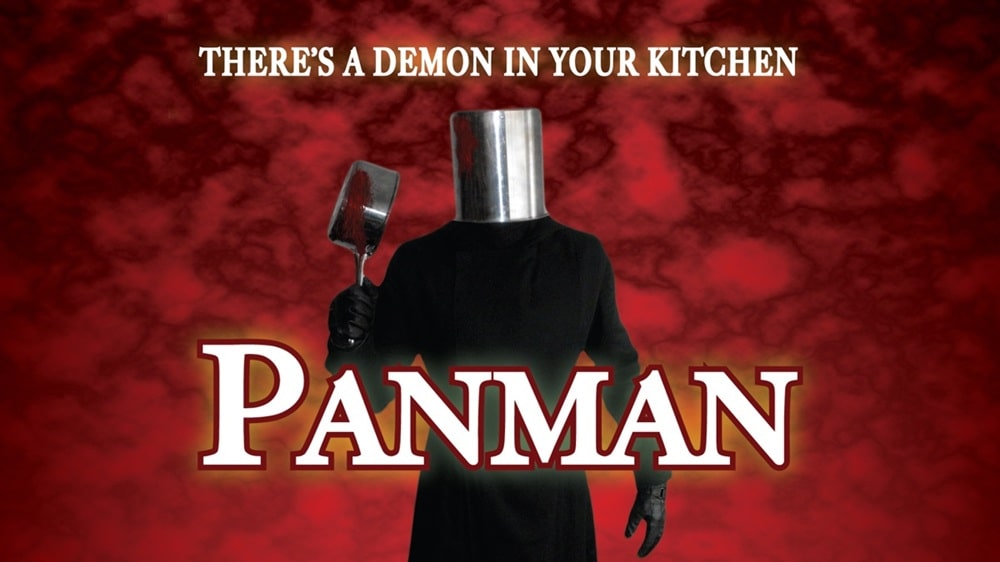 Panman (Bucket of Blood Films, 2011)
Panman (2011) – Tubi
Panman (Bucket of Blood Films, 2011)
Panman (2011) – Tubi
An ultra-low budget slasher flick that evokes elements of the 80s genre classics, except through the lens of a rubbish camera. This is one of those annoying efforts where the potential is painfully obvious, but is squandered by terrible choices and some truly awful acting.
A Russian chef is killed and possesses the body of a culinary student, turning him into Panman, a vengeful killer with a pot on his head. Panman proceeds to messily murder more culinary students (for reasons) and it is up to the custard professor to assemble a useless team to put an end to it.
There’s a couple of decent twists, and lots of great gore, but the whole affair is made a slog to watch due to shoddy filmmaking and THE worst case of over-acting I have ever seen. The actors playing the sisters were excellent though, and I wish the rest of the cast had been told to take it as seriously — just let funny be, stop trying to force it.
A vague recommendation. 4/10
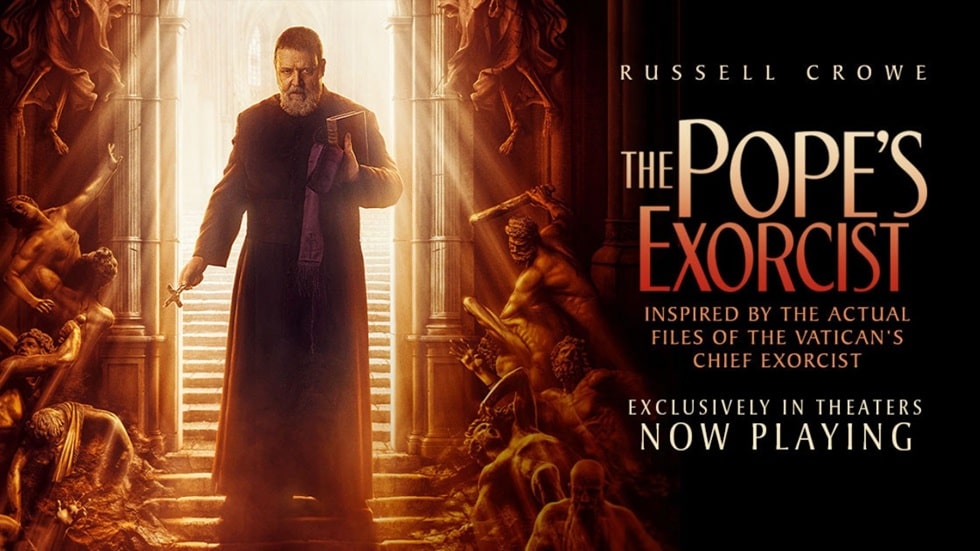 The Pope’s Exorcist (Sony Pictures, April 5, 2023)
The Pope’s Exorcist (2023) – Crave
The Pope’s Exorcist (Sony Pictures, April 5, 2023)
The Pope’s Exorcist (2023) – Crave
We witness the main protagonist show off his skills by ridding a poor sap of a demonic presence in the first few minutes. Then we watch as a young family take possession of a spooky new domicile, just as a whole new bucket of demons is unleashed.
So far, so Conjuring. I truly suspect over the half the films coming up follow the same story.
Anyhoo — it’s up to the Pope’s super-exorcist to help the family out when their son is turned into a potty-mouthed hell spawn, and we soon learn the scale of the stakes at play.
I had a lot of fun watching this one, mostly because of Russell Crowe. He was having a great time playing this scooter-riding bad ass priest, and his mannerisms and little asides were hilarious. Everyone played their parts well, even Franco Nero (!) as the Pope.
At one point it all goes a bit Tomb Raider, then full on Exorcist, then a little bit From Dusk Til Dawn at the end.
A bloody good time was had by all, and it set itself up for 199 sequels. Nicely done. 8/10
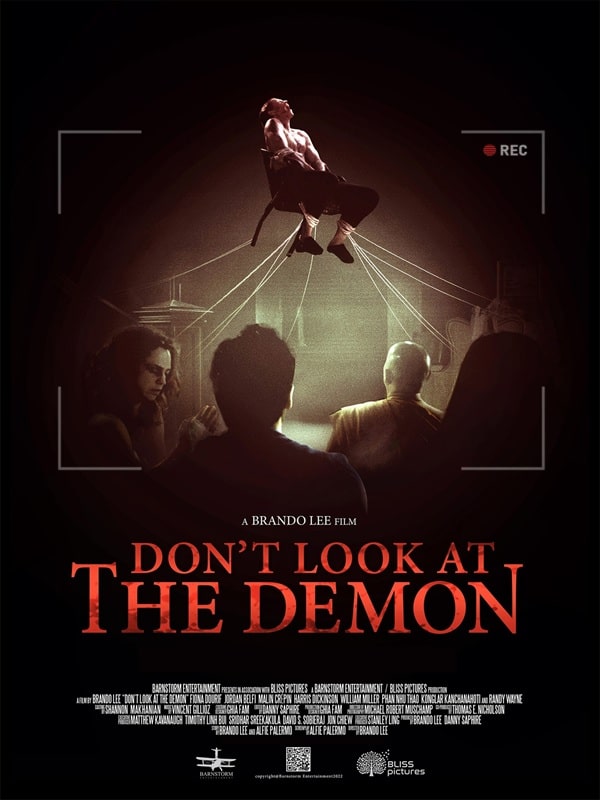 Don’t Look at the Demon (Barnstorm Entertainment, 2022)
Don’t Look at the Demon (2022) – Tubi
Don’t Look at the Demon (Barnstorm Entertainment, 2022)
Don’t Look at the Demon (2022) – Tubi
Before we get started, I just want to point out that I had lots of posters to choose from, but I chose this one because it looks like a shot from the worst Macy’s Day parade ever.
In search of something a little less Catholic, I discovered this recent effort that is based on a terrible (and now illegal) practice from Malaysia. The director, Brando Lee, has allegedly had first-hand experience of all this, and this being his third film demonstrates that he knows the ropes — I thought it was really well directed.
The story concerns a production crew who make their bread and butter filming ‘possessions’ for a reality series, but all of their investigations have required some fakery, until now. A married couple contact them as they have been going through some strange experiences, but when the crew arrives these events really ramp up. This is partly due to Jules, the resident ‘psychic’, who bridges the gap between the alive and the dead. The film starts as your typical possession movie, but gets very, VERY, dark rather quickly, and the final denouement is particularly shocking.
Trigger warning for folks who don’t like scenarios with babies. Stay away.
The cast are different levels of good, although the standout is Jules, and this is because she is played by Fiona Dourif who, like her dad, elevates any project she is involved with.
I wasn’t expecting it to be this good, and I recommend it to folks who like floaters and assorted ghastliness. 8/10
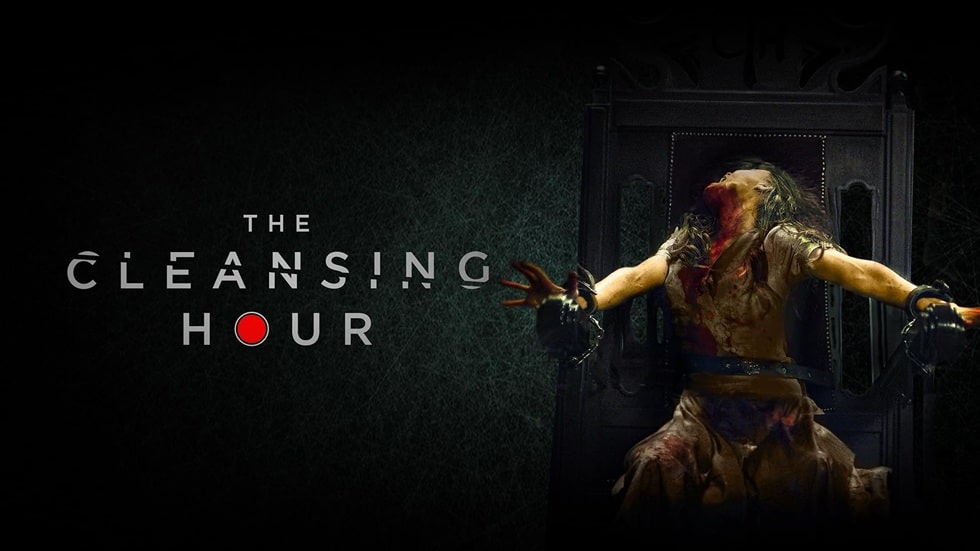 The Cleansing Hour (Shudder, September 16, 2019)
The Cleansing Hour (2019) – Prime
The Cleansing Hour (Shudder, September 16, 2019)
The Cleansing Hour (2019) – Prime
I vaguely recall hearing good things about this one being a decent balance of horror and humor, and they were right. It’s a blast, annoyingly enjoyable, and I don’t like how this marathon is changing my mind about possession flicks.
‘Father Max’ is the onscreen talent of a hoax exorcism streaming show called The Cleansing Hour. Max, along with his best friend Drew are failed priests, and now they are fleecing their online flock with fake demonstrations and chintzy ‘Vatican-approved’ merchandise.
When circumstances dictate that Drew’s fiancé, Lane, must step in and pretend to be the possessed subject, things very quickly escalate as the men realize they are dealing with a real demon, and everything quite literally goes to hell.
As with many of these films, the ‘priests’ have to come to terms with their own failings in order to save the ones they love, and the whole violent and sordid affair is streamed live to an ever-increasing audience that has no useful suggestions.
The online backdrop works really well here, and its worth pausing now and then to read the hilarious (and disturbing) comments being made — an accurate indicator of online discourse today.
The leads were all excellent, the effects were goopy and horrific and the film zipped along to a glorious finale with nary an ounce of fat.
Recommended. 9/10
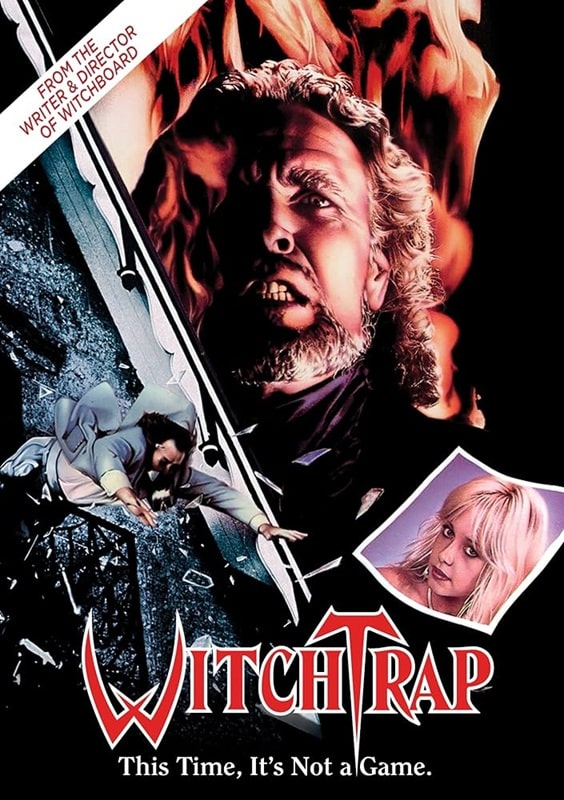
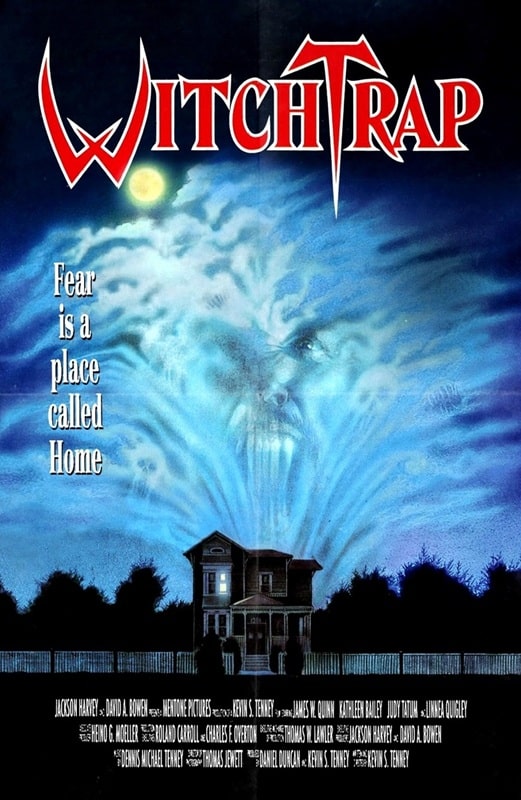
Witchtrap (Cinema Plus, September 7, 1989)
I realize that most of us think back fondly on the 80s as the golden age of horror, but it’s also worth remembering how much rubbish was also produced. Case in point, Witchtrap.
From the director of Witchboard, hoping to repeat his success, this one lands on the ‘so bad it’s good’ list with a clunk, but is it good? Is it?
A team of mediums, along with the worst security group ever, are trying to rid an old house of a demonic spirit so that it can be opened as a B&B. The spirit is a hairy demonologist, who has managed to hide his heart or something. We don’t care, we are here for the kills.
Sadly, these are a bit lackluster, and the only one that approaches the giddy heights of 80s foam rubber fun happens quite early on. Fan fave Linnea Quigley appears for about 15 mins before being offed, but at least she dies how she would have wanted; stabbed in the neck with a shower head while naked.
The only areas of note are how truly awful the dialogue is, and how horrendous some of the acting is. It’s hard to describe, but if you’ve seen it you’ll know what I’m talking about.
The film rips off every other possession film at the time, as well as Ghostbusters and, well just take a look at the bonus on the right poster above.
Avoid if you are sensible, recommended if you are daft like me. 4/10
Previous Murkey Movie surveys from Neil Baker include:
Fan of the Cave Bear
There, Wolves
What a Croc
Prehistrionics
Jumping the Shark
Alien Overlords
Biggus Footus
I Like Big Bugs and I Cannot Lie
The Weird, Weird West
Warrior Women Watch-a-thon
Neil Baker’s last article for us was Fan of the Cave Bear. Neil spends his days watching dodgy movies, most of them terrible, in the hope that you might be inspired to watch them too. He is often asked why he doesn’t watch ‘proper’ films, and he honestly doesn’t have a good answer. He is an author, illustrator, outdoor educator and owner of April Moon Books (AprilMoonBooks.com).
FUTURE’S EDGE by Gareth L. Powell
We Are Missing Important Science Fiction Books

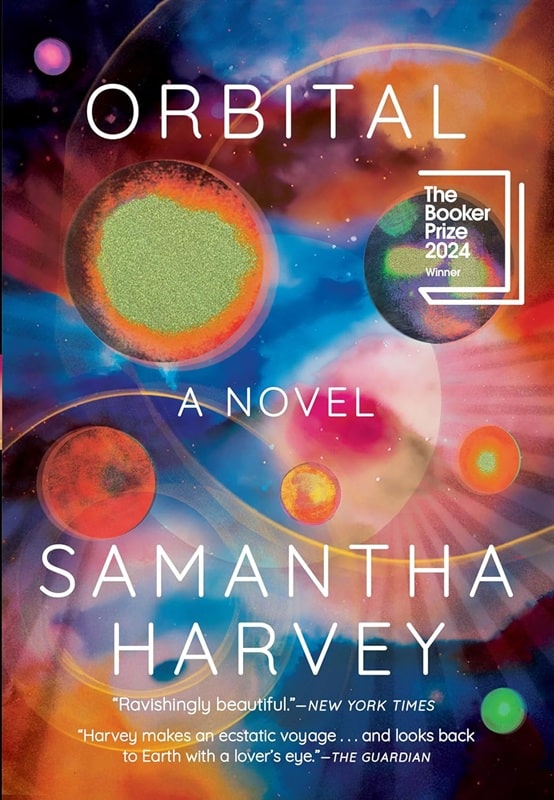
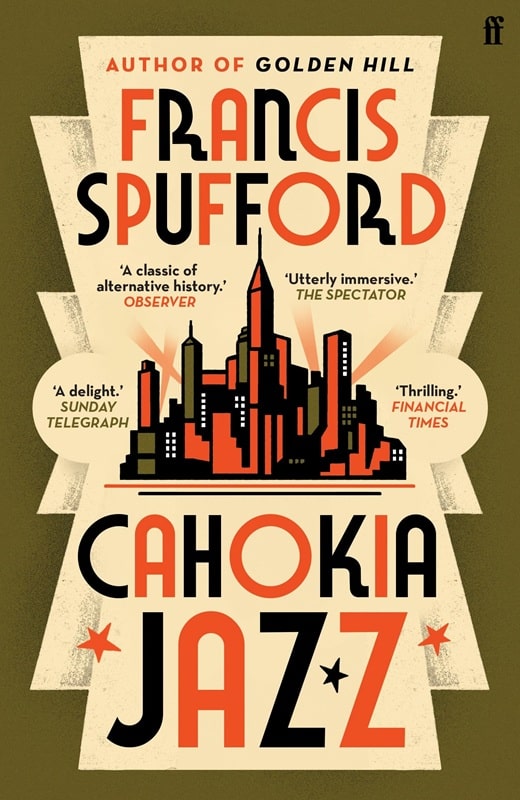
Bewilderment by Richard Powers (W. W. Norton, November 1, 2022); Orbital by Samantha Harvey
(Grove Press, October 29, 2024), and Cahokia Jazz by Francis Spufford (Faber & Faber, April 4, 2024)
I just finished Richard Powers’ Bewilderment, from 2021. It’s a really intriguing and powerful novel, that I argued with at times, but still loved. It’s got a great ending, tremendously moving.
And it is absolutely science fiction. Way more so than most SF books these days, even hard SF. But, somehow, it didn’t even get a sniff at either the Nebula or Hugo shortlist.
Mind you, I didn’t read it until now, so I’m part of the problem. And, to be fair, both Ian Mond and Paul di Filippo reviewed it for Locus, so it wasn’t ignored.
The Nebula that year went to The Master of Djinn, and the Hugo to A Desolation Called Peace. Both are fine books, and A Desolation Called Peace is science fiction. But they are not at the level of Bewilderment.
We — the SF community — are missing important SF books. We missed Orbital, a Booker winner. (Bewilderment made the Booker shortlist.) We may be missing Cahokia Jazz.
I think we need to come to terms with the fact that writers who are not part of our “SF community”, if you will, are doing some great science fiction anyway.
Rich Horton’s last article for us was a review of The New Atlantis, edited by Robert Silverberg. His website is Strange at Ecbatan. Rich has written over 200 articles for Black Gate, see them all here.
A Secret Giveaway

We do not have a Hugh for you today. It’s been a very challenging week.
My desk broke, and I bought a new one. I remember when standing desks were $3,000. I bought a height adjustable desk for $100. Then, when I finally decided to decompress and fire up Avowed, it helpfully warned me that I needed to update BIOS, because intel 13/14 has issues. I hate updating BIOS. I usually chicken out. This time I did it, and my system fans shot into the overdrive. For some reason the BIOS update set one of them to dc instead of pwm. Ask me how long it took me to figure that out. Way too damn long.
There are last minute Maggie-related things that had to be taken care of, like maps and extras, Sookie’s surgery, and anyway, life. Gordon came into the kitchen today to help me as I was washing up some pans I left soaking overnight and said, “It’s finally Friday. Long week.”
I thought it was Wednesday, BDH. Maybe Thursday.
Hugh’s book is going very slowly. This is going to sound very woo-woo, but as a writer, you kind of sink into your project. You live it, you’re deep in it. I keep bouncing from Hugh 2 for some reason. This book needs more thinking.
So there is no Hugh. But we got this email from Tor.

Just wanted to check in and see how many galleys you would like to order! Can you let us know how many author and agent copies you’d like us to reserve by Friday, 3/28?
Thank you!
Galleys are very basic ARCs. No frills, no covers, just the story in a super-plain binding. This is the very first batch, the first printing, probably pre-copyedit. We do not have an ETA on when the galleys will arrive, but this is your chance to get one just like our Grand Prize winner of the holiday giveaways.
This will be a US only giveaway. The giveaway will run for one week. Winner will be chosen on Friday, March 28th, 2025.
If you were transported into a book, which book would that be? Doesn’t have to be one of ours. Any book you’ve read. To enter, tell us your answer in the comments. One comment per person. You must enter on the blog. Facebook ands other social networks will not count.
Good luck!
The post A Secret Giveaway first appeared on ILONA ANDREWS.
DOGE- Supernatural Division (episode 7)
Desired by the Vissigroth - Book Review by Voodoo Bride
 Desired by the Vissigrothby Bella Blair
Desired by the Vissigrothby Bella BlairWhat is it about:SASKIA: The day started out so good, but turns from good to bad in the blink of an eye, when I run face-to-chest into one of the vissigroths of Leander. Like an impenetrable wall, his body doesn't yield one bit, awakening all kinds of unknown sensation inside me. When he demands I'm to be brought to his chambers that night, I fear the worst. But his proposition catches me off guard. He promises to take care of my ailing mother and even to find suitable mates for my sisters if I agree to become his vissy. What I don't realize though is that what starts as an agreement soon heats up into something more. So much more, because Treyton is by far the most handsome, considerate male I have ever met.
TREYTON: Driven by the need to avenge my family against our greedy susserayn my plan is simple, marry a human seffy and enrage our susserayn until the other vissigroths will see him for the tyrant he is and start a war. It's a good plan. A damn good plan. I never thought in a million years though that I would not only find myself attracted to the human seffy I pick to be my vissy, but that soon I develop more feelings for her than I thought myself capable of.
What did Voodoo Bride think of it:This was another freebie for signing up to Bella Blair's newsletter.
This story was around 80 pages and a nice enough read.There's little explanation about the world and the titles used, but it wasn't really necessary to follow the very quick romance. Once again some characters were dragged into the story who I suspect have their own books in the series this short story is from.
I think I like the world from the previous freebie more. I still have two more freebies to try to see if I want to read more from one of Blair's series/worlds.
Why should you read it:It's a good way to check out the setting of a series.
Cover Reveal – Storm Wood
Take a look at this stunning cover for the 4th Elven Kingdom book, STORM WOOD, designed by the amazing Hang Le! It will be out in the world May 13th. Deepest loyalty. Fiercest defiance. I never wanted to fall in love. My sister’s disappearance damaged me for such things. I’ve devoted my life finding her—no...
The post Cover Reveal – Storm Wood appeared first on Donna Grant.
The Sword & Planet Tales of Ralph Milne Farley
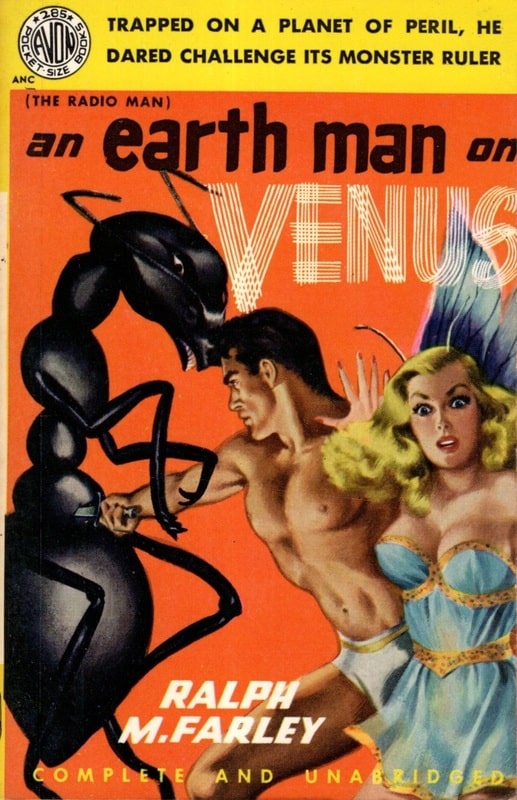
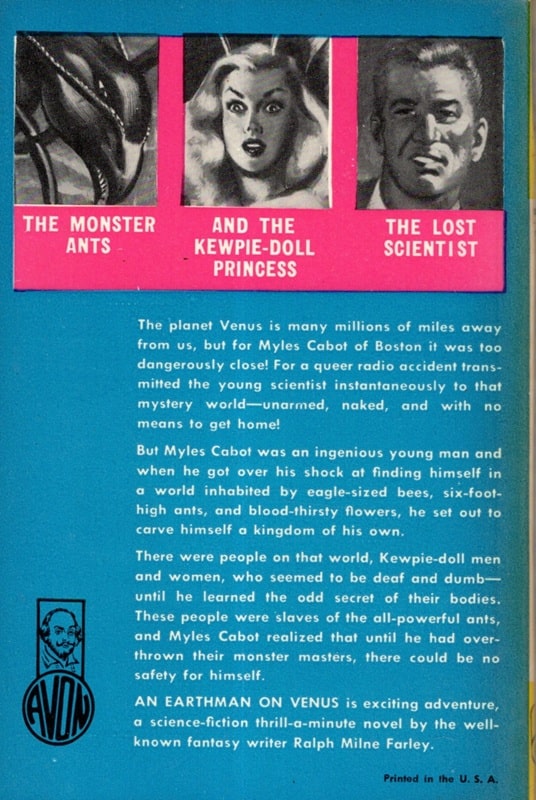
An Earthman on Venus (Avon, 1950). Cover by Raymond Johnson
Ralph Milne Farley (1887 – 1963) was a pseudonym for Roger Sherman Hoar. Hoar was a Massachusetts senator and an attorney general, so I can understand his use of a pseudonym to write his SF stories under, but I can’t imagine why he’d choose one just as long and awkward as his real name, and even less memorable.
At any rate, Farley was friends with Edgar Rice Burroughs and wrote his own series of Sword & Planet adventures sometimes called the Radio series, since most of the books featured the term radio in their titles.
[Click the images for non antmen-sized versions.]
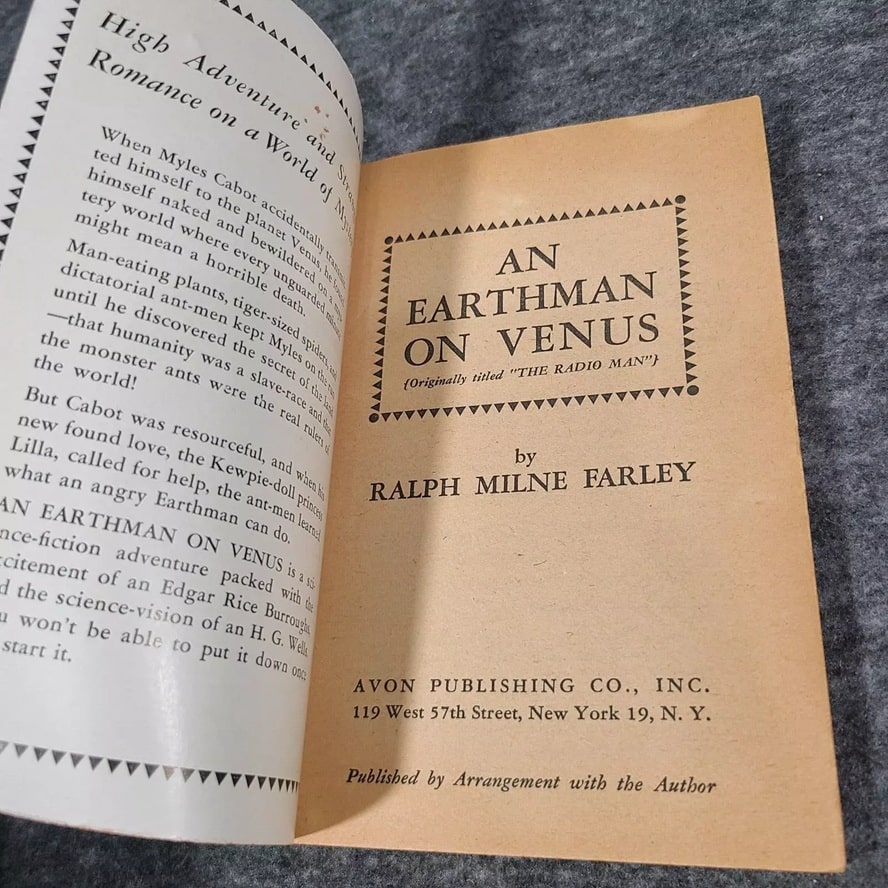 Inside cover of An Earthman on Venus
Inside cover of An Earthman on Venus
As far as I can see, there are about ten titles in this series, but I’ve only read the first two (covers shown above and below):
The Radio Man (or An Earthman on Venus): Avon Books, (Raymond Johnson cover), 1924/1950
The Radio Beasts: Ace Books, (Ed Emshwiller cover), 1925/1964
In The Radio Man, an Earth scientist named Myles Cabot invents a transmission device that uses radio and accidentally transmits himself to Venus, where he finds human-like beings — including a princess — who are enslaved by intelligent, horse-sized ants who use radio waves for communication. Cabot uses his technical know how to create guns for the humans and leads a revolt.
The story was inventive and fun but without nearly as much action and derring-do as ERB’s John Carter stories.
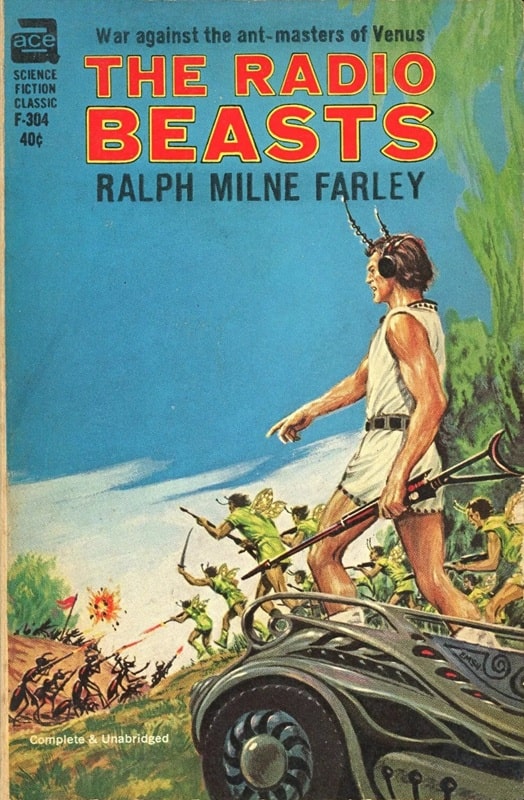
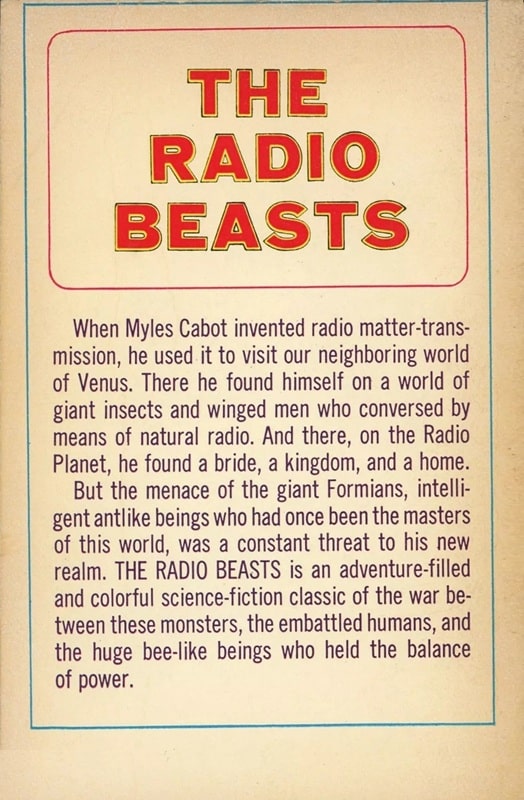
The Radio Beasts (Ace Books, February 7, 1964). Cover by Ed Emshwiller
The sequel, The Radio Beasts, was also readable but didn’t seem to add much to the overall story, and the writing doesn’t have the flair and color of ERB.
I don’t, at present, have any intention of reading the rest of the volumes, which — as far as I’m aware — consist of:
The Radio Planet
The Radio Flyers
The Radio Gun-Runners
The Golden Planet
The Radio Menace
The Radio Man Returns
The Radio Minds of Mars
The Radio War
Charles Gramlich administers The Swords & Planet League group on Facebook, where this post first appeared. His last article for Black Gate was Of Men, Monsters, and Little People.
Spotlight on “Fish Tales” by Nettie Jones
Fish Tales, by Nettie Jones, is a lost classic taking its rightful place in the…
The post Spotlight on “Fish Tales” by Nettie Jones appeared first on LitStack.
On McPig's Wishlist - The Warbler
 The Warblerby Sarah Beth Durst
The Warblerby Sarah Beth DurstFrom the author of The Lies Among Us comes a magical tale about mothers and daughters, choices and consequences, and the real meaning of home when every place feels like a cage.
Ten months. That’s the longest Elisa has stayed anyplace, constantly propelled by her fear that if she puts down roots, a family curse will turn her into a tree.
But she’s grown tired of flitting from town to town and in and out of relationships. When she discovers a small town in Massachusetts where mysterious forces make it impossible for the residents to leave, she hopes she can change her fate.
As Elisa learns about the town’s history, she understands more about the women in her family, who seem doomed to never get what they want. Now she believes she’s stuck, too—is that a patch of bark on her arm? But her neighbor’s collection of pet birds sings secrets that Elisa can almost understand—secrets she must unravel in order to be truly alive.
Book Review: White Line Fever by K.C. Jones
I received a review copy from the publisher. This does not affect the contents of my review and all opinions are my own.
 White Line Fever by K.C. Jones
White Line Fever by K.C. Jones
Mogsy’s Rating: 3.5 of 5 stars
Genre: Horror
Series: Stand Alone
Publisher: Nightfire (March 18, 2025)
Length: 368 pages
Author Information: Website
When it comes to horror stories, a girls’ weekend road trip meets a haunted highway sounds like it would be a match made in heaven. This is essentially the premise of K.C. Jones’ White Line Fever, which made me very excited to read it. But while the book is brimming with terrifying potential and starts off on the right track, it struggles to maintain that momentum, and by the end, I found myself more frustrated than thrilled.
The book follows Livia and her lifelong friends Ash, Mo, and Becka, who have affectionately called themselves “The Scoundrels” ever since their childhood days of adventure and mischief. As the story begins, Livia is passing another normal day doing laundry when she makes a devastating discovery while emptying her husband’s pants pockets—an unfamiliar condom wrapper, torn open. The shocking revelation of his infidelity immediately plunges Livia into a dark place. After growing up in an abusive home and eventually escaping her cruel and violent father, she’d thought she finally found happiness. Alas, it was not to be. Needing to get away, Livia turns to her old trio of friends, who suggest taking a road trip into the Oregon wilderness where they can all benefit from some quiet time away from life’s ugly realities.
However, their trip takes a dark turn when an unsettling encounter with an aggressive driver in a pickup truck forces them to take a shortcut through the backroads, onto County Road 951—known to locals as The Devil’s Driveway. Short as it may be, countless tragedies have occurred on this road, spawning dozens of urban legends about it and earning it its sinister nickname. Initially unfazed, the group is just glad to be back on schedule, but after a while, strange things start happening that make them question their sanity. All of them experience losing time and begin having nightmarish visions, and after driving for what seems like hours, they never seem to make progress off this lonely stretch of blacktop that’s only supposedly 15 miles long. Desperation and panic set in as they eventually realize they are trapped with no way to escape.
As this surreal ride unfolds, the novel shifts between past and present, allowing readers a glimpse into the characters’ traumatic pasts that have shaped each of them. Especially prominent are flashbacks to Livia’s childhood, which was spent in the small, insular town of Newberry. There, she and her mother lived in constant fear under the brutal authority of her father, who ran an auto shop and fixed up junk cars. For relief, Livia often sought the company of her friends, including sisters Ash and Mo, and hung out secretly in the junkyard. At some point, though, all of them have come up against the threat of Livia’s father, whose shadow looms over them even after all these years.
At first, this back and forth proved generally effective at creating an unsettling atmosphere and establishes reasons for Livia’s breakdown following the implosion of her marriage. The flashbacks were also welcome breaks in the present timeline in which the intro mainly featured the women driving and talking. However, this pattern quickly became repetitive, resulting in a long, drawn-out buildup period that ruined the eventual payoff. For one, the plot repeatedly teases the horror elements, then pulls back just as they start getting interesting. For another, the characters gradually reveal themselves to be frustratingly dense, doing more bickering than solving problems even as their situation went downhill. Simply put, after a while I just got tired of being jerked around and spending time with these moronic ladies.
Don’t get me wrong. Annoying characters and wonky pacing aside, the book is still pretty solid. But I do think the best parts came too late, especially towards the end when the group meets up with another character whose part in the story was actually introduced in the prologue. Still, while this connection brought the cohesion which had been lacking back to the book, it wasn’t enough to redeem all its earlier missteps. In fact, here the story veered into even weirder, more confusing territory, making for an interesting but somewhat disjointed conclusion.
In the end, White Line Fever is a flawed horror novel which excels in certain areas but falls short in others. But although the thrills didn’t live up to the premise, it is still worth checking out if you enjoy unsettling character-driven stories, and the concept of an all-female cast trapped in a supernatural horror predicament makes me think this would appeal to fans of Rachel Harrison.
![]()
![]()
New Audio Books
So, Amazon is offering me to Beta test AI generated Audio Books. (Virtual Voice Narration) To be clear, this is a Beta test, and I don't do audio. I've flirted with it a few times but I never got into it. My 1 time listening to it for myself was in the 90's when I found Anne McCaffrey had produced a tape of Dragonsong. That was... different.
Anyway, I have converted 5 books so far. They are available on Amazon and Audible.
If there is sufficient interest I will convert more. Not all books can be converted. (word count is limited to under 240k so big books are a no)... I'm curious as to how they work out. Obviously there will be issues (possibly funny ones) with pronunciations and such.
At the moment they are using an American female voice. I don't know how to do alternate voices. (it was mentioned that they may extend it to have different voices do different characters at some point) I was tempted to try the British female voice but held off. I'm not sure if you the listener can play with the voice on your own.
Enjoy!
Upcoming Books
Sitrep:
I have finished 4 books and they are with the Proofreaders:
Jethro 9 Siege

To be published April 2025
Multiverse 8

To be published June 2025
Shelby 9 Peacekeepers

To be published August 2025
Tales of the Federation Reborn 7 Winds of Change
 To be published in October 2025
To be published in October 2025
The Story of Orc Dog

Before I tell you this story, I will say that everything ends happily.
Sookie is our elderly Ye Olde English Bulldogge, otherwise knows as the orc dog. She is beauty, she is grace, how can you not love that face?

She is going on 13 years old. Her hips and her knees have arthritis. She moves around solely because of the steady regimen of fivovet, gabapentin, and osti, a joint supplement, which Gordon administers to her every morning via a hot dog. We started her on smoked sausage at first, because Sookie, despite eating rocks and random crap, is a master of spitting the pills out. Hiding them first in her favorite sausage and then in hot dogs is the only way we can get her to take it without shoving a hand down her throat. The morning pill ritual became known as sausage time. Occasionally Sookie will drag herself into the kitchen and sit because it’s sausage time and she would like her treat, please.

Several days ago, I woke up at 4:30 am and couldn’t go back to sleep. After rolling around for a while, I checked my phone and it was a good thing I did, because Kid 2’s house had sprung a leak and she was in a panic. That’s a fun story for another time, but to summarize, it turned out that a 2×4 fell because of a faulty nail and dented her AC pan. It ended happily, but threw me into a sleep deficit for a few days.
A couple of days later, I wake up in the middle of the night again. I check the clock. 4:30 am. What is it about the 4:30? I hear a choking sound, which, as any dog owner will tell you, is code for get up and let your dog outside. I open the primary bedroom’s door, let Sookie out, and flick on the lights, resigning myself to cleaning up some dog vomit.
Blood. It’s like a crime scene from a gory police procedural. There is blood on the floor, blood on her pillow, blood, blood, everywhere is blood.
OMG, our old dog is dying.
The other two dogs are like, “Hey, there is blood. How cool.”
I check on Sookie. She is standing in the yard in the dark. I grab peroxide, drown the worst of the blood on the floor – yay, tile, mop it up with paper towels, so no cats or dogs decide to taste it. Then I wake up Gordon, tell him there is blood, and then we both go to get Sookie in.
Sookie walks very slowly because of her arthritis, so it takes awhile. Finally we bring her in and she takes two steps inside the house and collapses. Her paws are bloody, her chin is bloody, everywhere is bloody. I’m sitting on the floor, with peroxide and paper, my hands in latex gloves, and frantically trying to clean her up to see if it’s a wound of some kind.
There is no wound. The blood is coming from her mouth. It must be internal bleeding.
By now it’s past 5:00 am. The only emergency vet in range is on the other side of New Braunfels. It will take almost an hour to get there, and when we do get there, we will have a long wait. She is 80 lbs of dead weight and Gordon, who normally would pick her up and carry her, can’t do it because of his shoulder.
I’m crying because the dog is dying. Cleaning and crying and cleaning and…
Sookie sighs, gets up, and goes to the kitchen to drink water.
We watch her drink and then she sits by the island.
Sookie: Sausage time?
Us: WTF.
Gordon gets a chunk of chicken and tosses it to her. She snaps it out of the air and eats it.
Clearly the news of her demise was greatly exaggerated.
We decide to wait for our regular vet to open. There is no point in going to the New Braunfels vet, because not only will it take forever to get down there with traffic, but she took food and water which means she will be triaged to the middle of the line, so dogs hit by cars and bitten by rattlesnakes can get life-saving care.
Our vet opens at 7:00 am, I call them, they get us in first thing in the morning.
Sookie has infected teeth. There must’ve been an abscess. It ruptured. How did a cup and a half of blood come out of it, I have no idea, but that was the answer.
Sookie was scheduled for the dental surgery. This was very stressful all around. We weren’t sure if she would come through the surgery okay because of her age, but her quality of life was a factor and unchecked tooth decay can lead to gum disease and jaw infections. Cue a week of tense waiting.
She had the surgery yesterday. 13 extractions and almost $3,000 later, here she is back to living her best life on her pillow.

She is very mad at us. She occasionally groans, and right now she is not in the study with us because she chose to lay in the living room by her lonesome. However, she took soft food and water today so we are on the road to recovery.
In other good news, the final edit of This Kingdom was accepted and we are off to the copyedit. Much rejoicing all around.
Here is hoping for a few days of not waking up at 4:30 am because of some crisis.
The post The Story of Orc Dog first appeared on ILONA ANDREWS.
The Beating Heart of Science Fiction: Poul Anderson and Tau Zero
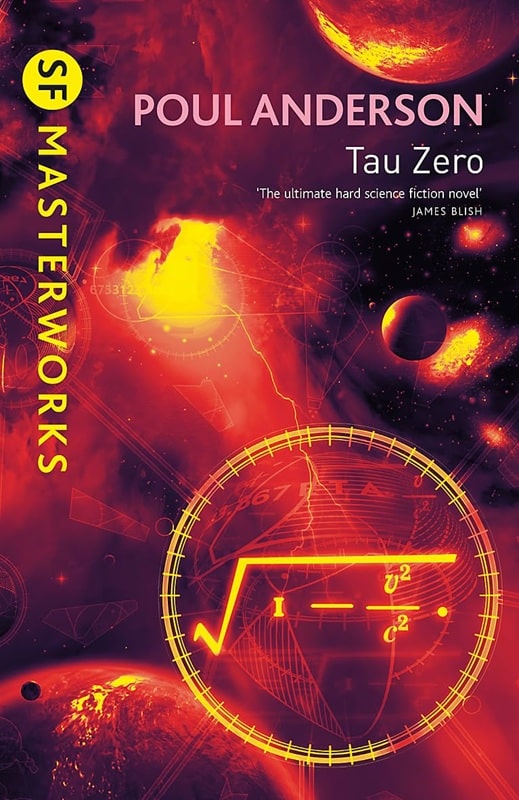 Tau Zero (Millennium/Gollancz SF Masterworks, February 2006). Cover by Dominic Harman
Tau Zero (Millennium/Gollancz SF Masterworks, February 2006). Cover by Dominic Harman
Science fiction — what is it, really? What elements place a story firmly in the genre? For any requirement that you can think of, there is probably a great sf story that violates it, and rather than cobble together some dictionary-ready definition, it’s easier to just think of particular books that you would hand to someone unacquainted with the genre with the words, “Here — read this; this is science fiction!”
Everyone would have their own choices for such a list, of course, and those choices would amount to your de facto definition. For me, some of those books would be Rendezvous with Rama by Arthur C. Clarke, The Stars My Destination by Alfred Bester, and Man Plus by Frederik Pohl, but the very first book on my list would be Poul Anderson’s 1970 novel Tau Zero. Why? What does this book have that makes it a quintessential work of science fiction?
Maybe it’s this — it’s a grand voyage, a brave excursion into the great out there, and it also has a grand perspective shift, like a camera pulling back in a movie, a maneuver that radically alters everything that you had previously thought about the story, something that’s not a minor adjustment, but a move that completely explodes the frame. You think the story is this, but it’s really that, you think you’re here, but you’re really there; the here where you thought you were turns out to be the tiniest corner of there, a there that is larger and stranger and more dizzying than you ever could have originally imagined. (In The Encyclopedia of Science Fiction, Peter Nicholls calls this kind of maneuver a “conceptual breakthrough.”)
Tau Zero begins as a straightforward story of an interstellar voyage, but it ends as far away from that prosaic beginning (prosaic by the standards of science fiction, I mean) as it is possible to imagine. Farther than that, really, and I think that’s the whole point.
Sometime in the 23rd century, the colonization ship Leonora Christine sets out from earth for a planet thirty light-years away. Unlike many stories of this type, the voyage isn’t prompted by the world coming apart at the seams; generally, things are going quite well, which is largely due to the people of the planet submitting to a global government run exclusively by… Scandinavians. Everyone just handed the reigns to the Nordic folk because of their universally acknowledged rationality, efficiency, impartiality, and lack of any pesky Will to Power. I know, I know — send any complaints to that son of Denmark, Poul Anderson. I guess he figured he would inoculate his readers against all the wildness to come by giving them the nuttiest thing first.
If the interstellar colonization mission is a stock situation, Anderson peoples it with characters that are themselves mostly recognizable types. The Leonora Christine’s Captain is Lars Telander, a solid, stolid, stoic father figure who seems ideal at the beginning of the journey, but who fades (if not wilts) into the background under the stresses of the voyage and the extraordinary emergency that the crew eventually has to deal with. More central to the life of the ship and the story Anderson tells are First Officer Ingrid Lindgren, ultra-competent while still being sensitive and sympathetic, and the book’s real protagonist, Ship’s Constable Charles Reymont, willing to be as much of an unlikable, hard-nosed SOB as necessary in order to hold the crew together and complete the mission. Reymont’s and Lindgren’s on-again, off-again romance and their consciously embraced good cop/bad cop roles form the human core of the story.
Anderson devotes significant time to this pair and to the other crew members whom they alternately coax (Lindgren) and steamroll (Reymont) on the way to their goal. In one sense, the book is a tract on the dynamics of leadership in a uniquely stressful situation, and the author had clearly thought a lot about such problems and had some definite ideas about how to deal with them.
It has to be said, however, that Anderson’s depiction of character rarely rises above a fairly rudimentary level; there’s an off-the-rack feel to most of his people. What we have here isn’t Henry James in space, and stylistically, the book wasn’t written to dazzle; if you’re looking for graceful allusiveness, poetic imagery or memorable turns of phrase, you need to look elsewhere; Anderson’s prose generally doesn’t rise above the level of “workmanlike” (which doesn’t mean that it’s bad — it usually has the far from negligible virtues of efficiency and clarity). So, old Poul is no Nabokov in space, either.
So what? Tab A in Slot B prose and slide-rule stiff characters are hard-sf traditions that go back all the way to the vacuum-busting days of Hugo Gernsback (and Anderson’s work isn’t nearly as wooden as the stuff old Hugo published), which just means that you adjust your expectations when you read this kind of sf story. (Oh, what’s a slide rule? Google it, kid.)
In the long run, Anderson’s deficiencies are perfectly acceptable because what you read Tau Zero for is the writer’s wide-screen vision and the extraordinary crisis his people face, and what a vision! What a crisis!
The Leonora Christine powers itself by collecting hydrogen as it travels through interstellar space and using it for fusion. (Technically this makes the ship a Bussard ramjet, though Anderson never uses the term.) As such a ship can approach the speed of light but cannot exceed it, the vessel’s flight plan is to accelerate up to near light speed during the first half of its voyage and then steadily decelerate down from that halfway point until it arrives at the target planet. Because of the relativistic time dilation caused by its extreme speeds, over thirty years will pass on earth while only five years will pass on board the ship.
Initially, things go smoothly as the crew settles into the routines that will occupy them during their long journey, and as expected, people (half of the multinational, fifty-person crew are male and half are female) begin to pair off in preparation for life as colonists on their new world. Everything seems to be going according to plan, until, before reaching the midway deceleration point, the Leonora Christine collides with an unanticipated interstellar dust cloud; because of the ship’s increased mass (due to its speed) this is potentially a very serious event, more like slamming into a brick wall than strolling through a fog bank.
At first, the ship seems to come through this emergency surprisingly well, but the truth soon becomes apparent. The collision has caused irreparable damage to one vital system — the one used for deceleration. The Leonora Christine is unable to slow down.
Why is the damage irreparable? To make repairs, it would be necessary to exit the ship, but the engines generate radiation that would be instantly fatal to anyone outside the hull, and the engines cannot be shut down because they generate an electromagnetic field which is the only thing protecting the crew from the hard radiation of galactic space. (The darn thing must not have been designed by Scandinavians.)
Reymont, Lindgren and the rest are thus faced with the prospect of an endless, pointless voyage that can only conclude with their own deaths from accident, old age or despair, sealed inside something that began as a ship, turned into a prison, and can only end as a coffin. Such an appalling situation would be bad enough, but the Leonora Christine’s crew soon comes to an even grimmer realization.
Unable to decelerate, the time dilation that was to have initially separated them from their home by a mere thirty years is only growing more extreme. The stunned crew members quickly realize that it is not decades that are passing outside the ship, not centuries, not millennia, even. “Soon”, millions, and then billions of years have passed. The would-be colonists whose aim was to open a new world for people from earth to live on must now accept that earth’s sun has long since burned to a cinder, their planet has vanished, their species has become extinct. The fifty exiles on the Leonora Christine are the last human beings alive in the universe, and unless they can find a solution to their dilemma, they are the last human beings that there will ever be.
How will they respond? Panic? Madness? Suicide? Reymont and Lindgren (especially Reymont) are resolved to hold the crew together, determined that they will all continue to do their jobs in the hope (hope being one of the defining characteristics of the late, great human race) that they will eventually find some way to slow down and locate some world, somewhere, where they can make a new start and keep their species alive.
Despite being more radically alone than any human beings have ever been (at one point, someone quotes Father Mapple from Moby Dick — “for what is man that he should live out the life-time of his God?”), for the most part, the Leonora Christine’s people respond well; the extreme strain sometimes produces extreme effects, but no one commits suicide. (I suspect that Anderson knew that in such a situation, if just one person took that way out, it would likely be the effective end of everyone.)
Soon they have left, not only our own galaxy, but also the supercluster of galaxies that constitute our local “neighborhood”, in the hope of reaching a region in which radiation levels will be low enough to permit them to make their repairs. As these “empty” gulfs are completely uncharted, they are also trusting that chance (or that God whom some of them still believe that they have not outlived) will eventually bring them to a galactic group where they will find a suitable planet.
Unexpected difficulties continue to intervene, however, and by the time they are able to fix the damage and decelerate to begin their search for a new home, there is no longer any potential home to decelerate to; so much time has passed outside the ship that the expansion of the universe caused by the original Big Bang has reversed. The universe is now contracting in a “Big Crunch” in which all matter and energy are forced closer and closer together until the cosmic cycle will restart with another Big Bang.
What is there for the Leonora Christine to do but circle the cosmic seed and attempt to ride out the coming explosion and then try to find a young world to begin again on? That’s just what they are able to do, and the story that began on an old planet in an old galaxy in an old universe ends on a new planet in a new galaxy in a universe that didn’t even exist when the story began, uncounted trillions of years before.
The book closes with Charles Reymont and Ingrid Lindgren, two people who now constitute one twenty-fifth of the entire human race, standing on the soil of the home they have travelled such an inconceivable distance in time and space to reach. “Here was not New Earth”, Anderson says. “That would have been too much to expect.” But it is a place where the stubborn, resourceful, endlessly hopeful human race will be able to start anew, a place where it will have a chance to take root and flourish… and perhaps, avoid some of the mistakes that plagued it long ago in a universe that now no longer exists.
Charles Reymont, the man whose determination saved the entire human race, lightly rejects the suggestion of kingship that Ingrid Lindgren jokingly (but also not entirely unseriously) makes, and then “he laughed, and made her laugh with him, and they were merely human.”
Pardon my French (a language once spoken on the long-extinct planet earth), but… holy shit!
Tau Zero was called by James Blish the “ultimate hard science fiction novel.” It’s certainly difficult to think of one that could go beyond it; every time I finish reading it, I want take my brain out, shake it a little, massage it, and run it under a cold faucet before putting it back in my skull. It’s a book that takes your perspective and stretches it, and stretches it, and keeps on stretching it until you walk around bumping into walls because you’re so far from where you started that you have no idea where you are anymore and can’t even begin to imagine where you’re going to end up when you’re finished.
Even in the science fiction genre, there aren’t many books like that. Even a lemon-sucking, hard line anti-Campbellian anti-sentimentalist like Barry Malzberg grew positively misty whenever he talked about the book. Calling the novel “magnificent”, Malzberg rhapsodized that Tau Zero was “the only work published after 1955 that can elicit from me some of the same responses I had towards science fiction in my adolescence — a sense of timelessness, human eternity, and the order of the cosmos as reflected in the individual fate of every person who would try to measure himself against these qualities.”
This wasn’t just Malzberg indulging in nostalgia; Poul Anderson’s book, which marries a modest nuts-and-bolts style with a beyond-audacious premise, really does what Malzberg says it does, and in doing so it goes beyond the merely mind-boggling; it squares the boggle and keeps on squaring it until you’re so dizzy with infinitely expanding possibility that you have to lie flat on the floor for a while. For me, it’s the wildest, most exhilarating trip in all of science fiction.
I’m not going to return to the definitional task that I disavowed when I began this piece, but I do know that one of the things that we most want from a science fiction story is that when we finish it, we won’t end up back where we started. We want it to take us on a voyage, the kind of voyage that no other kind of writing can accomplish or even attempt.
If you want to know what kind of voyage that might be, I can do no better than to turn you over to one of the genre’s greatest voyagers, Poul Anderson, and commend to you his indeed magnificent novel, Tau Zero. When you’ve finished reading it, you might just feel — along with me — that what you’ve been holding in your hands is nothing less than the beating heart of science fiction.
Thomas Parker is a native Southern Californian and a lifelong science fiction, fantasy, and mystery fan. When not corrupting the next generation as a fourth grade teacher, he collects Roger Corman movies, Silver Age comic books, Ace doubles, and despairing looks from his wife. His last article for us was The Gorey Century
7 Author Shoutouts | Authors We Love To Recommend
Here are 7 Author Shoutouts for this week. Find your favorite author or discover an…
The post 7 Author Shoutouts | Authors We Love To Recommend appeared first on LitStack.
Bet On Me, Daddy - Book Review by Voodoo Bride
What is it about:Years ago, I made a promise to myself. That I would never again put myself at the mercy of a man.
Especially a man as sinfully rich and gorgeous as Beckett Stone.
Until the day a stupid little bet put me exactly where I swore I’d never be again. On my knees, ready to surrender it all for two little words.
Good girl.
I keep telling myself it’s casual. Just a club fling I can walk away from whenever I want.
And I should. Walk away, that is.
Because I’m not the only one with a shattered past. The ghosts that haunt Beckett’s dark, brooding eyes tug at my heartstrings. They make me want to forget all the promises I’ve made for myself. To throw caution to the wind and beg him to take a chance on me. On us.
To beg him to Bet on Me, Daddy.
What did Voodoo Bride think of it:Although we mainly read Fantasy or SciFi, once in a while a Contemporary book catches my eye. I saw the author mention this book on social media, I went to investigate, saw that beard: had to get it!
And this is a delicious read.
I should warn the casual BDSM reader that this Romance has a Daddy/Brat relationship, be aware it's not just a little spanking when in the bedroom, but an all in lifestyle.
That out of the way: I loved the dynamics between Ruby and Beckett. They both feel a strong attraction toward each other, but both have their reasons to not want to commit to a relationship. As they decide to be 'casual' they soon are in over their heads though.
The viewpoint switches between the two so you get to see in both of their heads. I could easily understand them both, and rooted for them to open up and let the other inside. Add some seriously hot scenes and I could not put this book down.
You bet I'll be be getting my hands on the first book, and there's going to be a book/series about a side character who immediately drew my attention!
Why should you read it:It's a deliciously hot BDSM Romance
Snake Oil Bullet by Craig Schaefer (reviewed by Mihir Wanchoo)

Official Author Website
Order Snake Oil Bullet over HERE
Read Fantasy Book Critic's review of The Long Way Down
Read Fantasy Book Critic's review of The White Gold Score
Read Fantasy Book Critic's review of Redemption Song
Read Fantasy Book Critic's review of The Living End
Read Fantasy Book Critic's review of A Plain-Dealing Villain
Read Fantasy Book Critic's review of The Killing Floor Blues
Read Fantasy Book Critic's review of The Castle Doctrine
Read Fantasy Book Critic's review of Double Or Nothing
Read Fantasy Book Critic's review of The Neon Boneyard
Read Fantasy Book Critic's review of The Locust Job
Read Fantasy Book Critic’s review of Down Among the Dead Men
Read Fantasy Book Critic’s review of Dig Two Graves Read Fantasy Book Critic's review of Sworn To The Night
Read Fantasy Book Critic's review of Detonation Boulevard
Read Fantasy Book Critic's review of Winter's Reach
Read Fantasy Book Critic's review of The Instruments Of Control
Read Fantasy Book Critic's review of Harmony Black
Read Fantasy Book Critic's review of Red Knight Falling
Read Fantasy Book Critic's review of Glass Predator
Read Fantasy Book Critic's review of Cold Spectrum
Read Fantasy Book Critic's review of Right To The Kill
Read Fantasy Book Critic's review of Black Tie Required
Read Fantasy Book Critic’s review of Never Send Roses
Read Fantasy Book Critic's review of Ghosts Of Gotham
Read Fantasy Book Critic' review of A Time For Witches
Read Fantasy Book Critic's review of The Loot
Read Fantasy Book Critic's review of The Insider
Read Fantasy Book Critic’s review of Any Minor World
Read Fantasy Book Critic's Interview with Craig Schaefer
Read Fantasy Book Critic's Harmony Black Series Interview with Craig Schaefer
Read Double Or Nothing Cover Reveal Mini-Interview with Craig Schaefer
Read Part I of Fantasy Book Critic's In-depth Interview with Craig Schaefer
Read Part II of Fantasy Book Critic's In-depth Interview with Craig Schaefer
Read the Wisdom's Grave Trilogy Completion Interview with Craig Schaefer
Read the 2019 And Beyond Interview with Craig Schaefer
Read the Right To The Kill Cover Reveal Q&A with Craig Schaefer
Read the Black Tie Required Cover Reveal Q&A with Craig Schaefer
Read the Charlie McCabe series interview with Craig Schaefer
Read My Sworn To The Night Cover Reveal Q&A with Craig Schaefer
Read 2020 State Of Schaefer Interview with Craig Schaefer Read Celebrating A Decade Of Dark Fantastical Tales with Craig Schaefer
OVERVIEW/ANALYSIS: The Joker had quoted something intriguing in the Dark Knight “I believe that whatever doesn't kill you, simply makes you... stranger”. I don’t know if Heather Schaefer took this as a motto for Harmony Black to live by but it certainly seems to be a guiding statement for this series. Within the past three books Harmony, Jessie and team have had their backs against the wall, Harmony especially has had a horrid time with her powers being erratic as well.
Snake Oil Bullet deals with a lot of plot threads and characters from the past seven books. There’s not a lot I can say about the main plot without spoiling it but the least I can say that a certain doctor from book 7 makes his reappearance as well as other heinous villains from the team’s past. All in all this volume has a lot going on within. This is also a book which acts as a bookend to the second arc of the Harmony Black series while also setting up a tantalizing future.
I was thinking there would be a Hannibal Lecter-Clarice Starling going with Harmony and her tormentor-in-chief demon but the author neatly sidestepped this scenario and sets up something else. There’s also a lot of things that are revealed about Harmony’s past which set up future intrigue. The author has definitely settled the question of who the Paladin is but Harmony will have a huge part to play based on what is revealed about her heritage. This book has some interesting action sequences and the best part is the author’s usage of mirror opposites during the climax (you’ll know what I mean when you read the book).
The Vigilant Lock team has come a long way from where it started and with the end of the second arc. The author has shaken up the board and now things are moving slowly but surely towards the big Enemy-Paladin conflict that has been teased over both the Faust and Black series. Rest assured there will be plenty of alien & extra-dimensional trouble heading the team’s way and we the readers will be here to enjoy it. I also loved how incredibly intricate this series is with the First Story saga and yet has its own weird ongoings as well. The ending promises more carnage of both the personal and team kind but Jessie and Harmony are no pushovers either.
Snake Oil Bullet is a fun and twisted story that uses all the pillars which have been set up in the past and creates a dark canopy for readers to enjoy. The plot is streamlined, packed with action, and twisted reveals. As a fan this book helped satiate my Harmony Black cravings while giving me more to ponder. I can’t wait for more of Harmony and whichever title Heather releases next.




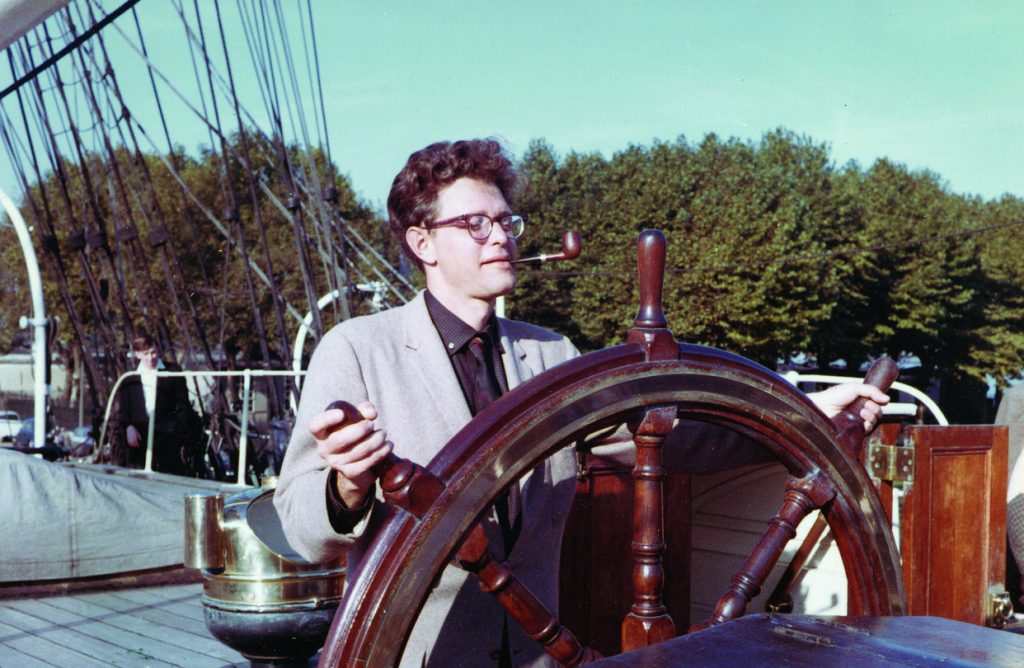
Recent comments